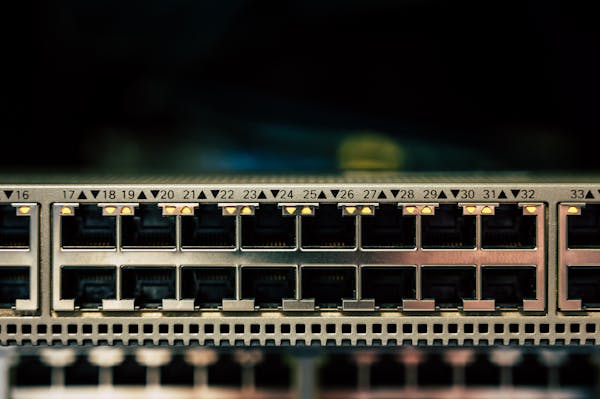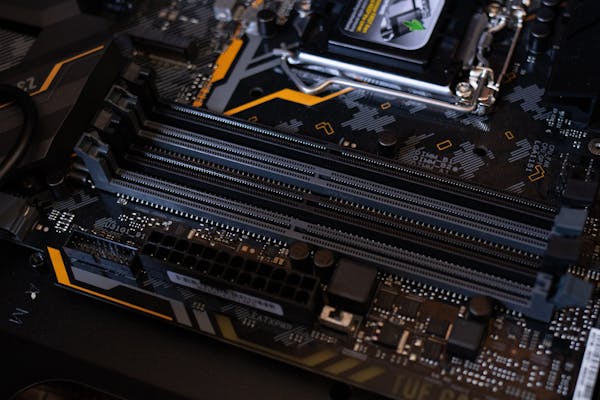Chưa được phân loại
Straightforward Review explaining 4G Rotating Proxies for Bots Now May 2025

Delving into 4G Rotating Proxies
In today’s digital landscape, 4G rotating proxies have become essential for secure and anonymous browsing.
What Are 4G Rotating Proxies?
4G rotating proxies utilize cellular data connections to assign dynamic IP addresses to users. Unlike static proxies, they change IP addresses periodically, enhancing anonymity.
Source article: rebrand.ly
How Do They Work?
Once initiated, users receive a 4G network IP. These IPs rotate based on time or requests, preventing consistent monitoring.
Benefits of Mobile 4G Proxies
- Improved Privacy: Dynamic IP rotation masks real IP addresses.
- Overcoming Location Barriers: Changing IPs facilitate unrestricted browsing.
- Reduced IP Bans: Frequent IP changes prevent bans.
Use Cases for Mobile Proxies
- Data Extraction: Rotating IPs prevent scraping blocks.proxies facilitate automation.
- Marketing Research: Changing IPs monitor competitor strategies.
- o Consider}
In choosing a proxy service, consider:
- Number of Available IPs: A larger pool offers better rotation.
- IP Change Intervals: Determine if the service rotates per request.
- Geographical Coverage: Access to multiple regions broadens usability.
Potential Challenges
- Pricing Structures: 4G proxies can impact budgets compared to other types.
- Connection Stability: Mobile networks may affect consistency.
- Regulatory Concerns: Ensure usage avoids illicit activities.
Conclusion
4G rotating proxies offer unparalleled anonymity, establishing their importance in modern internet usage.
Exploring the Inner Workings of 4G Rotating Proxies
In the realm of internet privacy, mobile 4G proxies have become essential components for conducting secure web activities.
An Overview of 4G Rotating Proxies
4G rotating proxies utilize cellular data connections to assign dynamic IP addresses to users. Unlike static proxies, they offer dynamic IP rotation, enhancing anonymity.
Mechanism Behind 4G Rotating Proxies
When activated, a dynamic IP from a mobile network is provided. These IPs are switched periodically, making tracking difficult.
Benefits of Mobile 4G Proxies
- Enhanced Anonymity: Dynamic IP rotation obscures user identity.
- Accessing Region-Locked Content: Changing IPs facilitate unrestricted browsing.
- Reduced IP Bans: Frequent IP changes prevent bans.
Applications of 4G Rotating Proxies
- Data Extraction: Rotating IPs ensure continuous data collection.
- Automated Posting: Dynamic proxies reduce account bans.
- Competitor Analysis: Changing IPs validate ad placements.
Choosing the Right Proxy Service
In choosing a proxy service, consider:
- Number of Available IPs: A larger pool enhances anonymity.
- Switching Mechanisms: Determine if the service rotates per request.
- Location Options: Access to multiple regions broadens usability.
Potential Challenges
- Cost Implications: 4G proxies often have higher costs compared to other types.
- Performance Issues: Mobile networks may affect consistency.
- Compliance Issues: Ensure usage avoids illicit activities.
Final Thoughts
4G rotating proxies offer unparalleled anonymity, establishing their importance in contemporary online activities.
In the modern digital age, remaining private and avoiding blocks has become more necessary than ever. Affiliate marketers, agencies, and SEOs often rely on proxies to simulate different locations. Among these, 4G rotating proxies have become game-changers.
How do they stack up against other options like static proxies? Let’s dive deep.
== What is a 4G Rotating Proxy?
A LTE rotating IP proxy is a proxy that routes internet traffic through a real mobile device. These proxies change IPs at custom timeframes or upon request, emulating human behavior and reducing the chance of bans or blocks.
== Main Proxy Types
Let’s summarize the key proxy types before comparing:
1. **Datacenter Proxies**
– Fast and affordable, but easily detectable.
2. **Residential Proxies**
– Use IPs assigned to real homes. More reliable, but slower and costlier.
3. **4G Mobile Proxies**
– Use real SIMs on LTE networks. Best for scraping, bots, social media.
4. **SOCKS5 Proxies**
– Protocol-based, flexible, used for various apps, not just HTTP.
== Comparison Table
| Feature | 4G Rotating Proxies | Datacenter Proxies | Residential Proxies | SOCKS5 Proxies |
|————————|———————|———————|———————|—————-|
| IP Source | Mobile Network (SIM)| Data Centers | Home IPs | Varies |
| Rotation | Yes (Frequent) | Sometimes | Optional | Manual |
| Ban Resistance | High | Low | Medium | Depends |
| Speed | Medium | High | Low-Medium | High |
| Price | High | Low | Medium | Low-Medium |
| Target Use | Social, Ads, Bots | General Scraping | E-commerce, Research| General |
| Block Detection | Low | High | Medium | Medium |
== Technical Advantages of 4G Rotating Proxies
Why choose 4G over anything else?
– **Real Device Trust**: Websites trust mobile IPs more than others due to carrier NAT and wide user pools.
– **Shared Reputation**: IPs are shared across many users, making banning a single user risky.
– **Geo-targeted Mobile Carriers**: Rotate between networks in real U.S. cities or countries.
– **Dynamic Rotation**: Can rotate every few minutes or after each request.
– **Bypasses Captchas**: Mobile IPs are less likely to trigger captchas or challenge verifications.
== Where 4G Proxies Win
Let’s cut to the chase— if you’re scraping Google or LinkedIn, nothing works better than a solid 4G proxy.
– Facebook and Reddit limit data center abuse.
– Web scraping? You’ll face fewer issues.
– Ads management across banned zones? Done.
== Where They Fall Short
– **Cost**: They’re not cheap.
– **Speed**: Slower than static datacenter options.
– **Limited Threads**: Some providers limit concurrent usage.
== SOCKS5 vs 4G: Protocol vs Behavior
If you need raw protocol-level control, SOCKS5 is your friend. But they don’t have native rotation.

| Attribute | 4G Proxy | SOCKS5 Proxy |
|———————|——————–|——————–|
| Protocol Type | HTTP/HTTPS | SOCKS5 (All apps) |
| Rotation | Yes | Manual |
| IP Trust Level | Very High | Medium |
| Use Cases | Social, Ads, Bots | Torrenting, Apps |
== Use Cases Side-by-Side
**4G Rotating Proxies:**
– Social Media Management
– Mobile Ad Verification
– SEO Scraping
– Sneaker Bots / E-com Testing
– Marketplace Automation
**Datacenter Proxies:**
– High-volume scraping (non-sensitive)
– Speed-demanding tasks
– Price-conscious campaigns
**Residential Proxies:**
– E-com price intelligence
– Research tools
– CAPTCHA-heavy targets
**SOCKS5 Proxies:**
– Application-level traffic routing
– Anonymity over torrents
– Bypassing firewalls
== How to Choose the Right One?
Not all proxies are created equal. Here’s how to choose:
– Need speed? Go datacenter.
– Need trust and stealth? Go 4G mobile.
– Need app-level routing? Go SOCKS5.
– Need wide IP pools without rotation? Try residential.
== Future of 4G Rotating Proxies
With AI detection systems growing smarter, only mobile IPs are keeping up. We’re seeing:
– 5G proxy rollouts in testing
– Smarter rotation algorithms
– Integration with automation platforms like Jarvee, NextPost, Puppeteer
== Final Verdict
If you’re serious about anonymity, 4G rotating proxies are your best bet. For any campaign that’s stealth-heavy or bot-powered, it’s worth the investment.
== Spintax Conclusion
Whether you’re managing client accounts, investing in the right proxy is a make-or-break decision.
4G rotating proxies may cost more, but the results speak for themselves.
https://www.fortinet.com/resources/cyberglossary/proxy-server
https://en.wikipedia.org/wiki/Proxy_server
https://surfshark.com/blog/proxy-server
